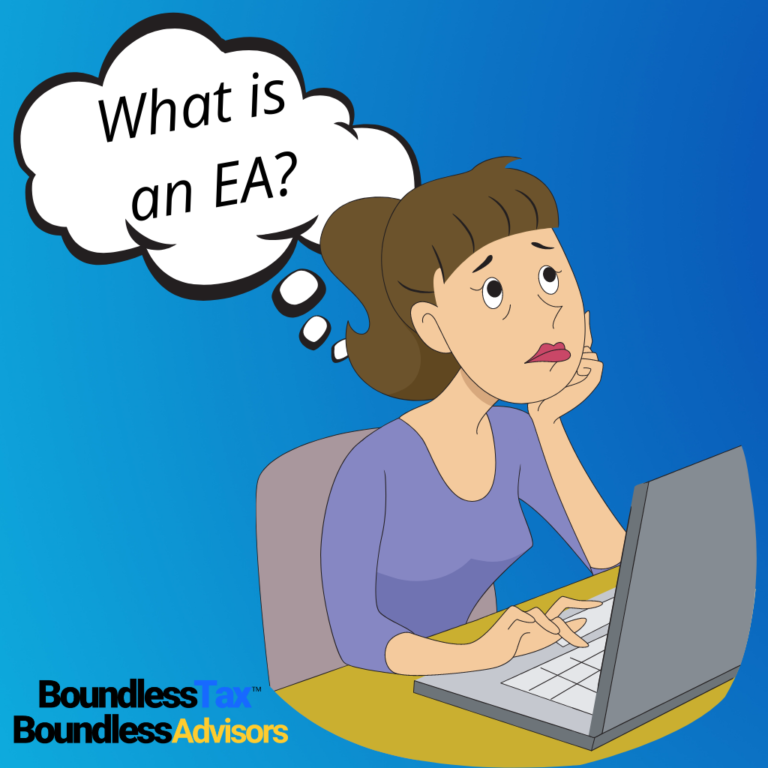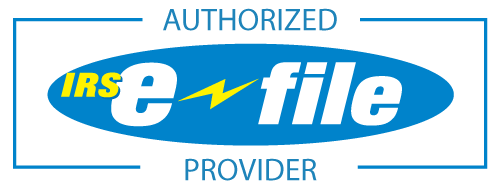
Our expert advice will help you achieve your tax & financial goals.



INDIVIDUAL TAX SERVICES
TAX REPRESENTATION SERVICES
Is the IRS knocking at your door? Needs to file older returns? Worried about garnishment? Let us help!




BUSINESS TAX SERVICES
BOOKKEEPING & PAYROLL SERVICES
Get help keeping your company’s books up-to-date from our expert bookkeepers.


We want to be your trusted advisor.
We’re IRS-Credentialed Enrolled Agents with decades of experience guiding individuals and business owners through the accounting and tax world. Our services are designed to be provided remotely using a secure portal and/or app from your tablet or smartphone, anywhere.
Don't just take our word for it.



We're Licensed and Awarded
Enrolled Agents


Boundless is a trusted advisor and a financial resource.
Our Services are Intelligently Packaged.
Tax Services
We’re more than just virtual tax prep!
$250* /year
- Online Annual Tax Preparation (federal and state)
- IRS account monitoring
- Married Filing Joint Versus Married Filing Separately recommendations
- Summer time Check-in for tax planning
- Video walkthroughs
- 24/7 Access to secure portal
- Secure tax document storage
- Dedicated E.A. tax advisor
- Optional Bank Products: Withhold fees from refund and/or tax refund loans
* Includes one 1040 tax return, Schedule A, One W-2, One 1099-INT, and one State return preparation
We are happy to offer a First Responder / Military discount.


Advisory Services
Recently launched your new business, or need to get a handle on your back-office duties? Services can also be purchase al-a-carte.
Business Formation:
- LLC formation in your state
- Operating Agreement drafted
- Obtain a Tax ID Number (EIN)
- S-Corp election with the IRS
- Employer registration in your state
- Sales tax registration in your state
- Alerts for annual corporate filings
- Open a business bank account
Tax Services:
- Dedicated tax advisor
- Personal & business tax returns (federal, state & local)
- Sales tax returns (one state)
- Quarterly tax estimate calculations
- Tax deadline reminders
- Annual salary recommendations
Accounting & Bookkeeping:
- Setup company books
- Quickbooks Online subscription ($50/month value)
- Assisted or full-service monthly bookkeeping services
- Dedicated Quickbooks ProAdvisor
- Monthly financial reporting
Payroll:
- Automatic payroll with unlimited runs
- Gusto Payroll subscription ($45/month value)
- Prepare and file payroll tax returns
- Get paid via direct deposit
- New hire reports filed in your state
- Issuance & filing of W-2 forms
Recent Tax & Accounting News

Avoid: Ghost Preparers
What is a Ghost Preparer? Someone who charges a taxpayers for tax preparation without signing the return. This person

What is an Enrolled Agent (EA)?
An Enrolled Agent has unlimited representation rights in front of the IRS and is largely considered America’s Tax Expert.

Tax Tip: Donating To a Charity May Decrease your 2021 Tax bill
Lower your 2021 tax bill and support your favorite charity at the time with this CARES ACT provision allowing you








